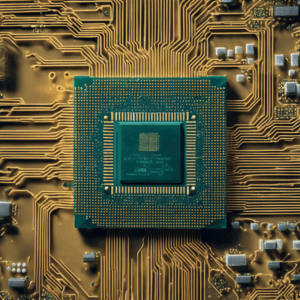
Is there a right to privacy in personal medical records and healthcare data? This is a question that has become increasingly relevant in our digital age, where vast amounts of personal information are being collected and stored. As an authority on the subject, I am here to shed light on this complex issue and explore how it intersects with other important considerations such as patient consent, health data interoperability, and telemedicine. So, let’s dive in and unpack these topics!
1. The Right to Privacy:
The right to privacy is a fundamental human right that is recognized by various international agreements and national laws. It encompasses the idea that individuals have the right to keep their personal information private and to control its collection, use, and disclosure. In the context of personal medical records and healthcare data, the right to privacy is particularly crucial, as these records contain sensitive and highly personal information about an individual’s health.
2. Patient Consent:
Patient consent plays a central role in the protection of privacy rights in medical records and healthcare data. In most jurisdictions, healthcare providers are required to obtain the informed consent of patients before collecting, using, or disclosing their personal information. This means that patients must be adequately informed about the purposes for which their information will be used, who will have access to it, and any potential risks or benefits associated with its disclosure.
3. Health Data Interoperability:
Health data interoperability refers to the ability of different healthcare systems, technologies, and organizations to exchange and use health data effectively. While interoperability has the potential to improve patient care and outcomes, it also raises privacy concerns. When personal medical records are shared between different systems or organizations, there is a risk that unauthorized individuals may gain access to the data. Therefore, robust security measures, such as encryption and access controls, are essential to protect patient privacy in interoperable health data systems.
4. Telemedicine:
Telemedicine, which involves the remote delivery of healthcare services using telecommunications technology, has gained significant popularity in recent years. While telemedicine offers numerous benefits, such as increased access to care and reduced healthcare costs, it also presents privacy challenges. When healthcare is delivered remotely, personal medical records and healthcare data may need to be transmitted over the internet, potentially increasing the risk of unauthorized access or data breaches. Strong encryption protocols and secure communication channels are vital to safeguard patient privacy in telemedicine.
In conclusion, the right to privacy in personal medical records and healthcare data is a critical issue that requires careful consideration. Patient consent, health data interoperability, and telemedicine all intersect with this right, posing both opportunities and challenges. As we navigate the digital age, it is essential to strike a balance between the benefits of data sharing and the protection of individual privacy. By implementing robust privacy safeguards, such as informed consent, strong security measures, and secure communication channels, we can ensure that personal medical records and healthcare data are treated with the utmost respect for privacy.
Unraveling the Veil: Understanding the Right to Personal Privacy in Healthcare
Unraveling the Veil: Understanding the Right to Personal Privacy in Healthcare
1. Is there a right to privacy in personal medical records and healthcare data?
– Yes, there is a fundamental right to privacy when it comes to personal medical records and healthcare data. This right is protected by various laws and regulations, such as the Health Insurance Portability and Accountability Act (HIPAA) in the United States. These laws aim to safeguard individuals’ sensitive health information and ensure that it is only accessed and used for legitimate purposes.
2. How does the right to privacy intersect with patient consent?
– Patient consent plays a crucial role in determining how the right to privacy intersects with healthcare. In order for healthcare providers to access and use a patient’s medical records or health data, they generally need to obtain the patient’s informed consent. This means that patients have the right to control who can access their health information and how it can be used. However, there are certain circumstances where patient consent may not be required, such as in emergency situations or when required by law.
3. What is the impact of health data interoperability on the right to privacy?
– Health data interoperability refers to the ability of different healthcare systems and providers to share and exchange health information seamlessly. While interoperability can enhance healthcare coordination and improve patient outcomes, it also raises concerns about patient privacy. When health data is shared between different entities, there is an increased risk of unauthorized access or data breaches. Therefore, it is crucial to have robust security measures in place to protect patient privacy and ensure that health data is only accessed by authorized individuals or entities.
4. How does telemedicine affect the right to privacy?
– Telemedicine, which involves the remote diagnosis and treatment of patients using telecommunications technology, has become increasingly popular, especially in recent times. While telemedicine offers convenience and accessibility, it also raises privacy concerns. Patients may worry about the security of their health information during virtual consultations or remote monitoring. Therefore, it is essential for healthcare providers to implement secure telemedicine platforms and adhere to privacy regulations to protect patient confidentiality.
In conclusion, the right to privacy in personal medical records and healthcare data is a fundamental aspect of healthcare. Patient consent, health data interoperability, and telemedicine all intersect with this right, posing both opportunities and challenges. By prioritizing patient consent, implementing secure data sharing protocols, and ensuring privacy in telemedicine practices, we can strike a balance between utilizing health information for improved care and respecting individuals’ right to privacy.
The Battle for Privacy: Examining the Legally Protected Right of Patients to Keep Personal and Medical Information Confidential
The Battle for Privacy: Examining the Legally Protected Right of Patients to Keep Personal and Medical Information Confidential
1. Is there a right to privacy in personal medical records and healthcare data?
In the realm of healthcare, privacy is a fundamental right that patients expect when it comes to their personal and medical information. The right to privacy in personal medical records and healthcare data is indeed legally protected. It is recognized and upheld in various laws and regulations, such as the Health Insurance Portability and Accountability Act (HIPAA) in the United States. This right ensures that patients have control over who can access their sensitive health information and how it is used.
2. How does the right to privacy intersect with issues like patient consent, health data interoperability, and telemedicine?
a. Patient consent: Patient consent plays a crucial role in maintaining privacy in healthcare. Before any sensitive medical information is shared or used, healthcare providers must obtain the patient’s informed consent. This consent ensures that patients are aware of how their information will be used, and it allows them to make informed decisions about their privacy.
b. Health data interoperability: Health data interoperability refers to the ability of different healthcare systems to exchange and use patient data effectively. While interoperability promotes efficient healthcare delivery, it also raises concerns about privacy. To protect patient privacy, stringent security measures and data encryption must be employed when sharing health data between systems. This ensures that patient information remains confidential and protected from unauthorized access.
c. Telemedicine: Telemedicine, the provision of healthcare services remotely through technology, has gained significant popularity in recent years. However, it also presents privacy challenges. When patients engage in telemedicine, their personal and medical information may be transmitted and stored electronically. It is crucial for telemedicine platforms to implement robust security measures to safeguard patient privacy. Encryption, secure communication channels, and strict access controls are essential to protect patient data during telemedicine interactions.
In conclusion, the right to privacy in personal medical records and healthcare data is legally protected. Patient consent, health data interoperability, and telemedicine are all areas where this right intersects with various challenges. By ensuring that patient consent is obtained, implementing strong security measures for health data interoperability, and prioritizing privacy in telemedicine, healthcare providers can uphold patient privacy and maintain trust in the healthcare system.
Unveiling the Veil: Exploring HIPAA Privacy Law’s Efficacy in Safeguarding Personal Health Information
Unveiling the Veil: Exploring HIPAA Privacy Law’s Efficacy in Safeguarding Personal Health Information
1. Is there a right to privacy in personal medical records and healthcare data?
– Personal medical records and healthcare data are considered highly sensitive and confidential information. The right to privacy in these records and data is crucial to protect individuals’ personal information from unauthorized access and misuse. It ensures that individuals have control over who can access their health information and how it is used.
2. How does the right to privacy intersect with patient consent?
– Patient consent plays a significant role in the intersection of the right to privacy and healthcare data. In order to access and use an individual’s personal health information, healthcare providers and other entities must obtain the patient’s consent. This consent can be explicit, where the patient explicitly gives permission, or implicit, where consent is implied based on the circumstances. Patient consent acts as a safeguard, ensuring that individuals have control over the disclosure and use of their health information.
3. What is the role of health data interoperability in relation to privacy?
– Health data interoperability refers to the ability of different healthcare systems and technologies to exchange and use health information seamlessly. While interoperability can enhance the efficiency and quality of healthcare delivery, it also raises concerns about privacy. The sharing of health data between different systems and entities must be done in a secure and controlled manner to protect individuals’ privacy rights. It requires robust security measures, such as encryption, access controls, and audit trails, to ensure that health information remains confidential and protected.
4. How does telemedicine impact the right to privacy in healthcare?
– Telemedicine, the provision of healthcare services remotely through electronic communication, has become increasingly popular. While it offers convenience and accessibility, it also raises privacy concerns. Telemedicine involves the transmission of personal health information over electronic platforms, which can be vulnerable to unauthorized access or interception. It is essential for healthcare providers to utilize secure communication channels and adhere to privacy regulations, such as HIPAA, to protect patients’ privacy rights during telemedicine consultations.
In conclusion, the right to privacy in personal medical records and healthcare data is a fundamental aspect of safeguarding individuals’ personal information. It is intertwined with patient consent, health data interoperability, and telemedicine. By ensuring individuals have control over their health information, obtaining consent, maintaining secure interoperability, and implementing privacy measures in telemedicine, the efficacy of HIPAA Privacy Law in safeguarding personal health information can be enhanced.
Is there a right to privacy in personal medical records and healthcare data, and how does it intersect with issues like patient consent, health data interoperability, and telemedicine? These are important questions that have become increasingly relevant in today’s digital age. As technology advances and healthcare becomes more interconnected, the protection of patient privacy and the security of their medical information are paramount concerns.
**What is the right to privacy in personal medical records?**
The right to privacy in personal medical records refers to the individual’s right to control the access, use, and disclosure of their health information. It is a fundamental aspect of medical ethics and is protected by laws and regulations in many countries. This right enables patients to maintain the confidentiality of their medical history, diagnoses, treatments, and other sensitive information.
**How does patient consent play a role in protecting privacy?**
Patient consent is a crucial component in protecting privacy. It ensures that individuals have the autonomy to decide who can access their medical records and for what purposes. Informed consent requires healthcare providers to inform patients about the potential risks and benefits of sharing their health data, allowing them to make an informed decision. Obtaining explicit consent from patients before their data is shared or used is a key step in safeguarding their privacy rights.
**What is health data interoperability, and how does it intersect with privacy?**
Health data interoperability refers to the ability of different healthcare systems and technologies to exchange and use electronic health information seamlessly. While interoperability aims to improve the quality and efficiency of healthcare delivery, it also raises concerns about privacy. The secure exchange of health data must adhere to strict privacy standards and protocols to protect patient information from unauthorized access or misuse.
**What role does telemedicine play in the privacy of healthcare data?**
Telemedicine, the remote delivery of healthcare services using telecommunications technology, presents unique challenges to privacy. As patients interact with healthcare providers through virtual platforms, the protection of their personal medical records becomes crucial. Secure communication channels, encryption, and robust cybersecurity measures are essential to ensure that patient privacy is maintained during telemedicine consultations.
In conclusion, the right to privacy in personal medical records is a vital aspect of healthcare data protection. Patient consent, health data interoperability, and telemedicine all intersect with this right, as they influence the access, use, and security of individuals’ health information. Upholding patient privacy requires a balance between leveraging technology for improved healthcare outcomes and implementing stringent measures to safeguard sensitive data. By addressing these issues effectively, we can ensure that the privacy of personal medical records is respected in an increasingly digital healthcare landscape.









HIPAA is crucial, but does it really protect our health data privacy? Thoughts?
HIPAA needs updating to keep up with telemedicine advancements and ensure patient privacy rights.
HIPAA laws need to evolve with telemedicine advancements for better privacy protection.
Privacy is crucial, but what about data sharing for research? Lets discuss! 🤔🔍👩⚕️
HIPAA needs updating for telemedicine privacy concerns. Consent and data sharing are crucial.
I think patient consent is crucial in balancing privacy and healthcare access.